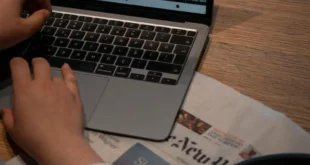On the evening of Monday, August 11, 2003, two spontaneous riots erupted in Beirut. They occurred around the same time and were triggered by the same event. About an hour earlier, Future TV had announced voting results after the semi-final of its flagship program, Superstar, the Arabic version of Pop Idol (UK) or American Idol (US). The first riot erupted at the Beirut Hall, a concert venue where the Superstar finale had just concluded. Several people passed out, including one the mothers of two semi-finalists and the third semi-finalist herself who lost consciousness after learning she had moved on to the finale. The second riot unfolded when fans of the ousted semi-finalist gathered spontaneously in front of Future Television studios to protest the decision. What gave these riots their passion and poignancy was the fact that the Lebanese contestant Melhem Zein was eliminated while the Syrian candidate Rowayda Attiyeh was elevated to the finale.
Events unfolding on and around Superstar from its first through its third season reflect the status of the relationship between Lebanon and Syria, which between 2003 and 2006 has experienced a historic reversal. Syrian domination of Lebanese affairs grew during the war, as the shrewd Hafiz al-Assad, a magnificent practitioner of divide and rule politics, ultimately sealed his dominion over Lebanon by joining the US led coalition that ousted Saddam Hussein from Kuwait in 1991. During the 1990s, the Syrian regime dealt with Lebanon through what became known as the troika system, a tripartite relationship between the Syrians on the one hand, and the Lebanese President, Prime Minister and Speaker of the House, on the other hand. When Emile Lahoud was elevated to the Lebanese presidency in 1998, Syrian policy, at least officially, relinquished the troika system, in tandem with developing a police state in Lebanon similar to the one in Syria. Various intelligence and security “services” became all-powerful, leading some observers to conclude that the Syrian regime had cloned itself in Lebanon. By summer 2003, when the Superstar riots occurred, many Lebanese believed that the Syrian intelligence services decided even the most trivial issues in Lebanon. Within minutes of the announcement of the results by Future TV executives, rumors had spread via text-messaging that Syrian intelligence officers weighed in on Future TV managers to elevate the Syrian contestant to the finale.
Since that moment, Superstar in effect became a barometer, giving the public a sense of the “atmospheric pressure” in Lebanese-Syrian relations. Differences between the 2003 and 2006 seasons of Superstar offer a clear public indication of the reversal in Lebanese-Syrian relations. In 2003, the head of Syrian intelligence in Lebanon acted as proconsul over Lebanon, and Syrian hegemony over Lebanese affairs was transparent and uncontested within the Lebanese political class. The Syrian-forced unconstitutional extension of Lahoud’s presidential mandate in 2004 confirmed Syria’s clout in Lebanon but also signaled its peak. The extension triggered public expressions of opposition to Syria, notably moving Rafiq al-Hariri into undeclared opposition to Syria’s role in Lebanon. Hariri’s assassination on February 14, 2005, intensified anti-Syrian sentiment and contributed to the withdrawal of Syrian troops from Lebanon in April 2005 under combined pressure from the United States, France, Saudi Arabia and Lebanese street demonstrations.
Elsewhere I have argued that reality television programs have an impact on Arab public discourse because they are public events that are popular with audiences whose active participation the programs promote.(1) Like other Arab reality television shows, Superstar (the first installment) was very popular with Arab viewers from Morocco to Iraq, reached by Future TV’s satellite broadcasts. Around 30 million viewers watched the finale of Superstar 1, (2) and 4.8 million voted, 52 percent for the winner, a Jordanian woman.(3) More important is the fact that singers performing in front of three jurors became symbolic warriors dueling with other contestants for the glory of their respective nations. Their personal feelings and aspirations notwithstanding, contestants become embroiled in a “battle of nations” in which their compatriots appropriated them as national symbols. In this respect, contestants attract the attention of politicians and private companies throughout the Arab world, both associating themselves with Superstar contestants for political or commercial gain.
***
February 5, 2006 was a difficult night for Shahd Barmada, a 17-year old Syrian who was facing off against Ibrahim al-Hekmi, a 25-year old Saudi, on the finale of Superstar 3. Undoubtedly a gifted performer with a beautiful voice and an impressive stage presence, Barmada had the misfortune of performing in the finale of Superstar 3 in one of the tensest moments in the history of Lebanese-Syrian relations. Syrian troops had withdrawn from Lebanon nine months earlier, but a media war had ensued between Lebanon’s Future TV, LBC, Al Mustaqbal and Annahar on one hand, and Syrian TV, Al Thawra and Tishreen on the other. Superstar 3 was a Future TV production, so Barmada’s dilemma was that she was a Syrian national competing on the television channel owned by the Hariri family one week before the first anniversary of the Hariri assassination, which was widely blamed on Syria. Barmada had spent the previous week fending off interviews in the Arab press, asking people to vote for her as an artist and insisting that politics should be left out of Superstar.
As Barmada walked to the front of the stage in a long shimmering beige dress to perform a song by Warda al-Jaza’iriyya, the camera zooms into a medium shot showing Barmada from the belt up. Suddenly, the screen is obscured by the back of a man whose graying hair betrayed his age. As he moves away, the man who turns out to be Barmada’s father reveals a large Syrian flag which he had just wrapped around his daughter’s shoulders. With a forced smile following a brief moment of what seems to be intense unease, Barmada removes the flag and throws it on her left shoulder, without interrupting her stunning rendition of Warda’s song. The young woman who has spared no effort in portraying her participation as a personal, artistic achievement unrelated to politics had found her body hijacked by patriotism. Getting rid of the flag was an untenable proposition, so putting it on one shoulder was the next best option.
Until the Syrian audience “boycotted” Future TV in the wake of the campaign the channel unleashed against the Syrian regime throughout 2005, Future TV enjoyed higher ratings in Syria than Syrian television. Superstar was extremely popular in Syria, where by the account of one observer, “the only movement (in Damascus on the evenings when Superstar is broadcast) comes from a stream of lights emitted by a large apartment complex across the way,” the source of which turns out to be all the television sets tuned in to Future TV,(4) and by another account, Syrian government officials, business owners and the general public engaged in a “populist carnival” in support of the Syrian contestant in Superstar 1.(5) Despite Syrian media boycott of Barmada’s participation in Superstar, and calls by the official press to boycott Future TV entirely, the Syrian “street” was abuzz with rumors and questions: Can Barmada receive a fair treatment on Future TV? Can she withstand the power of a Saudi contestant whose compatriots are known for their zeal in voting for Saudi contestants in pan-Arab reality television shows? And what about the Hariri family’s intimate ties with the Saudi establishment? In interviews published in Al-Quds Al Arabi, Al Hayat and Assafir, Syrians expressed hope that Barmada would prevail while pouring scorn on Future TV. Others were worried that Syrian calls to boycott the program would hurt Barmada’s chances. The same newspapers published accounts whereby some Lebanese were worried that the Hariri family would push to make Barmada the winner to mend their relationship to the Assad regime.
The result announced the next night was close, with Hekmi winning with 53 percent of the votes, and Barmada losing with an honorable 47 percent. As the camera showed her father crying, Barmada said that she was “above all the political and racist arguments, otherwise [she] would have withdrawn from the show a long time ago.”(6) Nonetheless, a statement she had made in an interview published two days earlier in Al Quds Al Arabi betrayed her own ambivalence about the politicization of Superstar. Asked about her opinion of “those in Syria who do not want to vote for you so that Future TV does not win,” she answered: “Those who think logically will not be swayed by those requests. We are in an artistic show unrelated to politics. Otherwise I would have had to withdraw from the show earlier. These people are superficial. Let those who love me vote for me. I am a daughter of Syria after all.”(7)
***
Whether they like it or not, contestants in Arab reality television programs are appropriated in national rivalries, sometimes with negative consequences. As public events pitting contestants from multiple Arab nationalities against each other, reality television shows in the Arab world become what I call idioms of contention,(8) providing an arena and a vocabulary for waging political battles whose scope and implications are completely beyond the contestants’ control. As other contestants before her, Shahd Barmada fell victim to this game of nations, as her own body was used as a surface for a display of patriotism, politicizing in a single moment a Superstar journey that she spent weeks arguing was “unrelated to politics.”
 Arab Media & Society The Arab Media Hub
Arab Media & Society The Arab Media Hub




